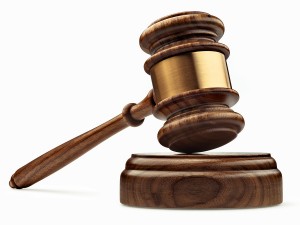Apple Inc. (NASDAQ:AAPL) has frequently faced legal hassles from patent assertion entities (PAEs), or “patent trolls,” but this time the lawsuit comes from a different source – the company that legally invented and patented much of today’s 4G wireless technology, Canada’s Wi-LAN. Wi-LAN is a well known and respected tech company originally founded in 1992. The firm has carved out a robust niche for itself by inventing a number of innovative high-speed wireless technologies, then licensing them to electronics manufacturers at an affordable rate.
Thus far, Wi-LAN’s case appears to be a strong one. The 4G tech it is suing Apple Inc. (AAPL) for, which is currently used in all Apple smartphones, was invented by Kenneth Stanwood, the head of Wi-LAN’s American branch, Cygnus Broadband. The Canadian company’s claims are strengthened further by the fact that 130 tech manufacturers, including big names such as Nokia, Motorola, and Samsung, license the same tech, acknowledging Wi-LAN as the lawful owner of the patents involved and the concepts therein.
 Though Wi-LAN asked Apple (AAPL) for talks with representatives before initiating litigation, the Cupertino company’s response was to launch patent lawsuits against Wi-LAN instead. The current suit charges Apple with violating five of Wi-LAN’s patents “directly and wilfully,” an extra detail that will entitle the Canadian firm to enhanced damages should they win their case in court.
Though Wi-LAN asked Apple (AAPL) for talks with representatives before initiating litigation, the Cupertino company’s response was to launch patent lawsuits against Wi-LAN instead. The current suit charges Apple with violating five of Wi-LAN’s patents “directly and wilfully,” an extra detail that will entitle the Canadian firm to enhanced damages should they win their case in court.
Wi-LAN has been at the heart of 4G technology – and was instrumental in the development of many 3G and earlier wireless technologies, too – since the wireless communication method was invented, according to the statement made as part of the lawsuit filing. In Apple’s favor are deep pockets and a battery of experienced patent lawyers who have taken on, and often defeated, the best attorneys available to such powerful firms as Samsung.
According to an article by Ottawa Citizen, Wi-LAN has something of a record of losing battles yet winning wars. Alcatel-Lucent, for example, won in the courtroom when it was sued by Wi-LAN, yet shortly thereafter signed royalty agreements with the Canadian tech company and began making royalty payments for the patented ideas it is using.
The current lawsuit seems unlikely to have quite as gentlemanly an outcome, however. Apple did not seek royalty agreements after winning a previous suit regarding 3G technology, and its immediate legal attack in the current case may indicate that its attitude is unyielding. Wi-LAN, noting that Steve Jobs once said “we have always been shameless about stealing great ideas,” seems unlikely to back down, either. The case will be heard in the San Diego Office of the California Southern District Court with Judge Janis Sammartino presiding.



